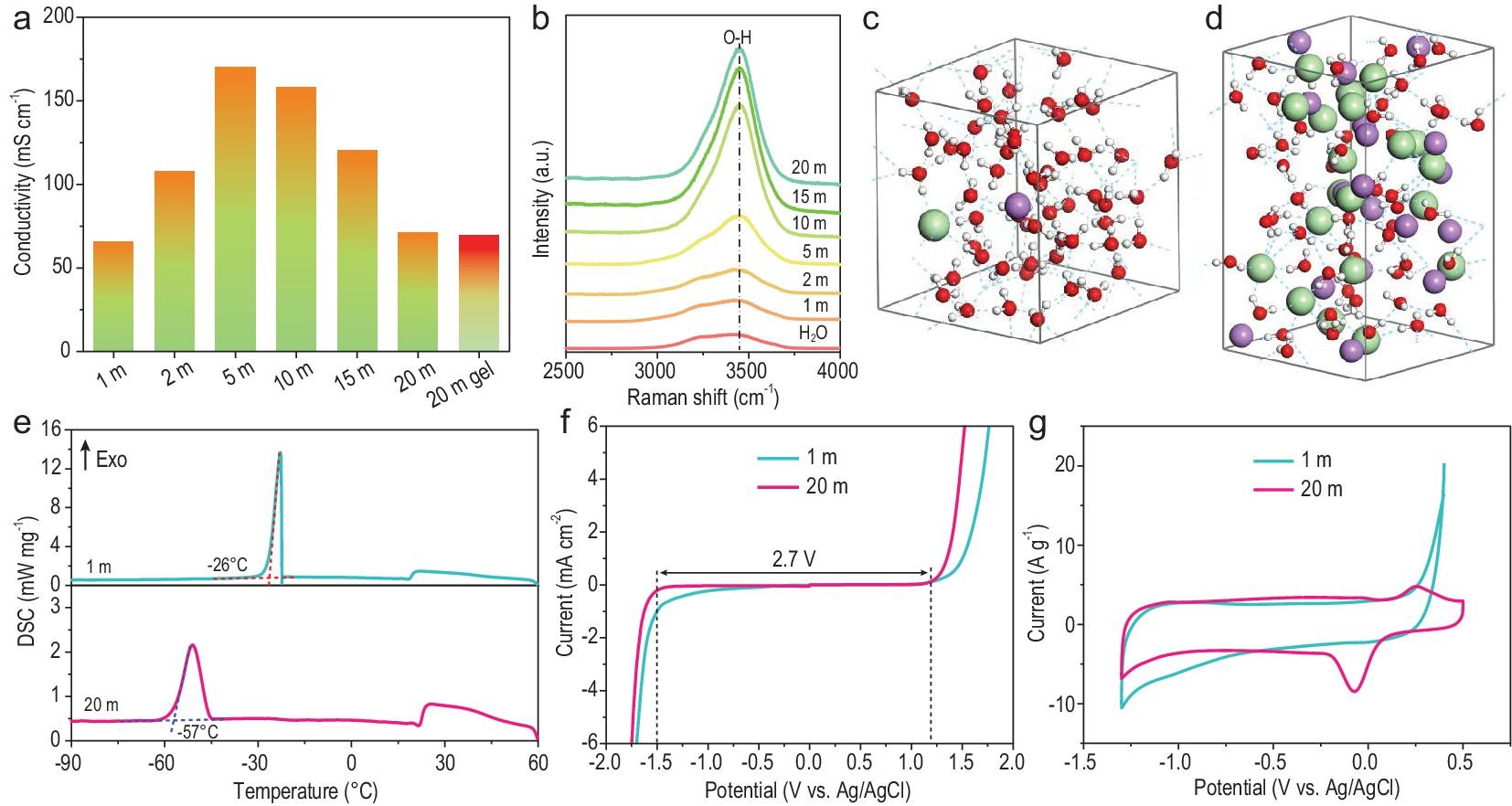Y.Y. Zhu†, S.H. Zheng†, P.F. Lu, J.X. Ma, P. Das, F. Su, H.-M. Cheng*, Z.-S. Wu*
National Science Review, 2022, 9, nwac024.
DOI: 10.1093/nsr/nwac024 [PDF]

MXenes are one of the key materials for micro-supercapacitors (MSCs), integrating miniaturized energy-storage components with microelectronics. However, the energy densities of MSCs are greatly hampered by MXenes’ narrow working potential window (typically ≤0.6 V) in aqueous electrolytes. Here, we report the fabrication of high-voltage MXene-MSCs through the efficient regulation of reaction kinetics in 2D Ti3C2TxMXene microelectrodes using a water-in-LiCl (WIL, 20 m LiCl) salt gel electrolyte. Importantly, the intrinsic energy-storage mechanism of MXene microelectrodes in WIL, which is totally different from traditional electrolytes (1 m LiCl), was revealed throughinsituandexsitucharacterizations. We validated that the suppression of MXene oxidation at high anodic potential occurred due to the high content of WIL regulating anion intercalation in MXene electrodes, which effectively broadened the voltage window of MXene-MSCs. Remarkably, the symmetric planar MXene-MSCs presented a record operating voltage of 1.6 V, resulting in an exceptionally high volumetric energy density of 31.7 mWh cm−3. With the ultra-high ionic conductivity (69.5 mS cm−1) and ultralow freezing point (−57°C) of the WIL gel electrolyte, our MSCs could be operated in a wide temperature range of −40 to 60°C, and worked for a long duration even at −40°C, demonstrative of its practicality in extreme environments.